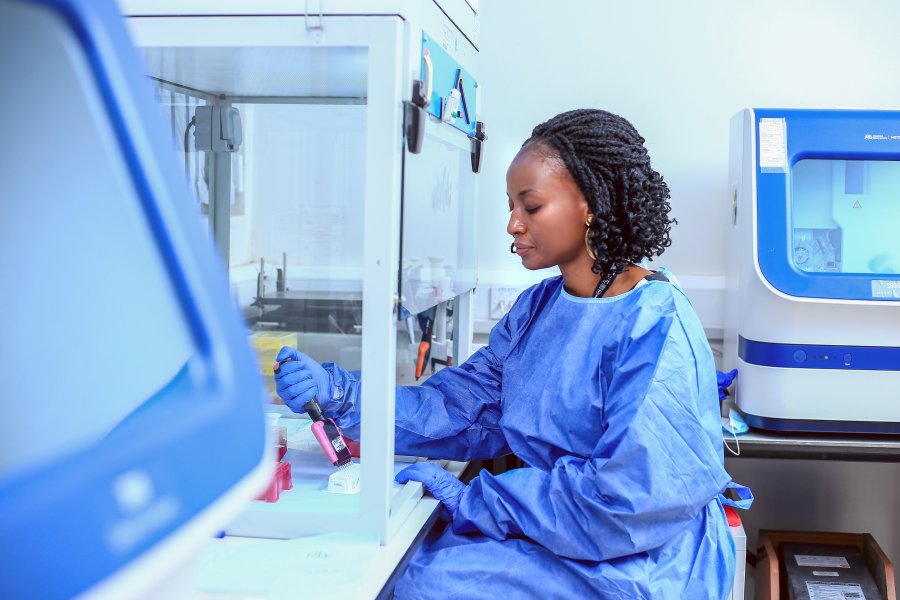
A new four-year CRICK Africa Network Fellowship award is underway at the MRC/UVRI And LSHTM Uganda Research Unit to explore HIV-1 reservoirs and immune responses in sub Saharan Africa. Funded by LifeArc,this study focuses on non-B subtypes such as A1, D, and A1D recombinants, which are prevalent in the region and present unique challenges in the fight against HIV. It aims to deepen understanding of the latent HIV-1 reservoir, a collection of infected cells that hide dormant viruses and make curing HIV extremely difficult.
The study will investigate how these hidden viral reservoirs interact with the immune system, looking specifically at reservoir behavior and host immune responses. The goal is to identify immune markers that could inform new therapeutic strategies to eliminate these reservoirs.
According to Dr. Sheila Balinda, a molecular virologist and the leading researcher on the study, the award is one of the first in Sub-Saharan Africa to focus on non-B subtypes, filling an important gap in global HIV research. She said,
“Understanding these reservoirs is crucial because even with the most effective antiretroviral therapy (ART), the virus can remain hidden and persist, making it impossible to cure HIV without addressing this issue.”
Researchers will use machine learning tools to predict how the viral reservoirs behave, combining computational approaches with virological and immunological research. The resultant insights will be crucial for future treatments designed to eliminate HIV’s hidden reservoirs.
Building local research capacity
Through a mentorship approach, the study will train a new generation of African scientists across Sub Saharan Africa, contributing to efforts to equip the region with the appropriate skills needed to tackle public health challenges.
“Through this study, I will mentor one PhD student, Frank Kato, who will in turn mentor master’s students, fostering a cycle of knowledge transfer and scientific excellence across generations,” Dr. Balinda said.
Dr. Balinda’s team includes experts like Dr. Kate Bishop, a senior group leader at The Francis Crick Institute, London, UK and Assoc. Prof. Stephen Cose, Head of the Immunology platform at the Unit, who will provide mentorship on the study.
About MRC/UVRI & LSHTM Uganda Research Unit
The MRC/UVRI & LSHTM Uganda Research Unit is an internationally recognized centre of excellence for research and training. Its mission is to conduct high-quality research that adds knowledge and leads to improved control of infectious and non-communicable diseases in Uganda, Africa and globally, through translation of scientific findings into policy and practice, and rigorous research capacity building.
About LifeArc
Life Arc, UK, a global self-funded medical research charity that collaborates with partners to get medical breakthroughs. By feeding in our expertise and collaborating with others, we build a better global system that speeds good science out of the lab and into real-life, closer to the people who really need it. LifeArc progresses promising early-stage science for some of the most under-served health conditions by funding it, forming partnerships, and providing scientific and commercialisation support
About Crick African Network
The Crick Africa Network (CAN) supports the development of equitable research capacity in Africa. The Crick’s mission is discovery without boundaries. We don’t limit the direction our research takes. We want to understand more about how living things work to help improve treatment, diagnosis and prevention of human disease, and generate economic opportunities for the UK.
Contact press@mrcuganda.org for enquiries about the study and interviews with the study leads.
LSHTM's short courses provide opportunities to study specialised topics across a broad range of public and global health fields. From AMR to vaccines, travel medicine to clinical trials, and modelling to malaria, refresh your skills and join one of our short courses today.
